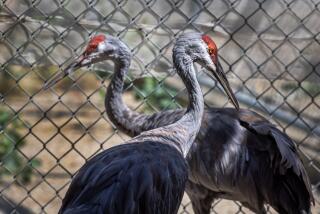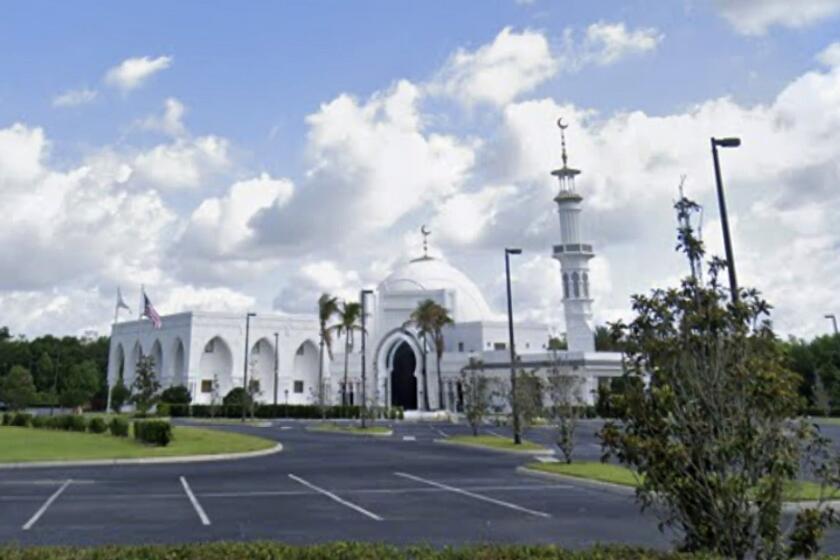Zoo deal can’t be swung
The long-awaited golden monkeys from China have some bad news: They’re not coming to the Los Angeles Zoo.
The arrival of the exotic blue-faced simians was part of a deal struck during a 2002 trade trip to China by former Mayor James K. Hahn. He wanted pandas but was offered the loan of three golden monkeys instead. The deal, however, became mired in the intricacies of global panda politics, something mostly beyond the zoo’s control.
“We’re obviously disappointed, but the negotiations with China -- it just didn’t happen,” said Jason Jacobs, a zoo spokesman. “They said no, and we’re going to Plan B.”
Instead of the chunky monkeys (they’re not fat, but for monkeys, they’re “big guys,” as zoo director John Lewis put it several years ago), the zoo plans to install a mixed-species exhibit of Asian animals including leaf-eating langur monkeys, miniature deer and pheasants. All would come from other U.S. zoos.
The zoo has already transformed an area of old concrete grottoes -- long out of favor as animal housing -- at an expense of $6.39 million. The Asian-styled exhibit features a walkway into a treetop viewing area where visitors can watch the animals through glass. A feng shui expert was hired for $4,500, “because the exhibit would not only house golden monkeys but would teach people about the culture of China, and that included the principals of feng shui,” Jacobs said.
The zoo hopes the restyled exhibit will open in August or September.
The rare and endangered Chinese monkeys were to have stayed at the zoo for 10 years -- slightly longer than the city spent waiting for them.
The real sticking point in the deal, according to David Towne, the Seattle-based zoo consultant who helped Hahn broker the deal, was a shift in Chinese attitudes toward zoos that borrow their animals. Zoos pay China millions of dollars a year to exhibit borrowed pandas. However, U.S. government policy dictates how China can spend that money.
“I think they were resentful that federal policy on importing any endangered species required that any money exchanged for that animal had to be used to conserve the habitat and wild population of that species,” said Towne, chairman of the Giant Panda Conservation Foundation, which helps zoos get panda loans and tries to verify what the Chinese do with the fees.
And this project -- arranged by a mayor now long out of office -- has no powerful political boosters who might push on diplomatic fronts. Also, the golden monkey loan was to cost the zoo, a city agency, $100,000 a year in fees to the Chinese. “It’s a combination of a lack of enthusiasm . . . and you’ve got a financial crisis,” Towne said.
Zoo Director Lewis was on vacation and could not be reached for comment.
“I don’t want to bang on the Chinese or the zoo or the people who tried to do this,” said Councilman Tom LaBonge, the zoo’s biggest supporter on the council. “We have a wonderful exhibit and it will be a very nice habitat in the near future for a species of monkey.”
But the golden monkeys’ loss is a male red-crowned mangabey’s gain. The exhibit is not open to the public, but the animal has spent two months testing it out -- to “make sure it’s monkey-proof,” Jacobs said.
--
More to Read
Sign up for Essential California
The most important California stories and recommendations in your inbox every morning.
You may occasionally receive promotional content from the Los Angeles Times.











